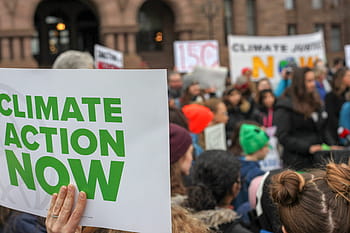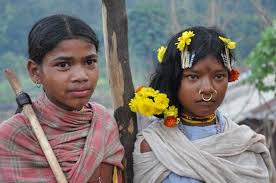By Somnath Pati

“There is something deceptively reassuring in our readiness to assume guilt for the threats to our environment: we like to be guilty since, if we are guilty, it all depends on us. We pull the strings of the catastrophe, so we can also save ourselves simply by changing our lives.” – Slavoj Zizek
On the route from my native place in Saraikela, Jharkhand to my hometown, in Rourkela, Odisha, one would come across several parts of a forested range which is known as the “Saranda”, considered to be the ‘largest Sal Forest of Asia’. However, the plight of the forest could be captured in an ‘innocent’ anecdote which my father used to share every time we made the journey to my village and that was, “When we were young, the Saranda was so dense that on this rail route, even during the brightest part of the day, the region surrounding the two tunnels constructed between the Goilkera and Mahadevsal station (which occupy the 25th and 26th spots on the list of rail tunnels in India, by length) would act as an endless and vast space of greenery obstructing sunlight, and it seems so dark, just like dusk”. It was described in a 2017 study by Dipak Anand and Syed Ainul Hussain, who work with the Wildlife Institute of India, Dehradun, that the Saranda’s exposure to continuous “indiscriminate mining has disturbed the ecosystem of this fragile region” and that 213 species of plants had disappeared.
It was in the year of 2018, in July probably, when I was travelling to the Eastern Ghats with just some thousand rupees to finance myself for a trip, which I had saved through my scholarships, and internships, as a graduate student from a college in University of Delhi. I was staring at the window and I was about to doze off, with the calm breeze blowing in a usual, unreserved compartment of a lonely passenger train. I woke up with a jerk and saw that the train had stopped on the outskirts of a station, named Doikallu, which I searched on the weak mobile internet (still a privilege!) to only find that the most highlighting feature of the place was described in the terms of a Naxalite attack with posters of protest, and in which, they “triggered blasts” and “snatch walkie-talkies” of railway personnel in an incident on March 30, 2017, as reported by The Indian Express. The dusk at the outskirts offered a faint ethereal glow in the cloudy evening skies at Doikallu and the train resumed the journey finally, after a long, yet refreshing halt.

Doikallu is in the Rayagada district of Odisha. A story of the other railway stations on this route like Bissamcuttack, Muniguda, and Lanjigarh point at the same Rayagada district which is home to the famous Niyamgiri hill ranges, inhabited by the indigenous Dongria Kondh tribe. Much of it is probably widely known in the informed environmental “circles of discussion” due to the conflict between political policies and the subsequent “social resistance” generated by the same, for which a large environmental movement emerged.
The discourse created by the forces of ‘elitist activism’ and ‘objective concerns’ is that of a constant ‘online shaming’, as simply on the assumption of a larger general apathy. But, there is no apathy, at least on the part of the larger conscious and informed masses. The selectiveness of response to issues is primarily rooted in the personal or sometimes, collective priorities to be accorded to different concerns at different points of time.
A few months ago, the Aarey Forests had grabbed the headlines which led to ‘awakening’ concerns of many individuals, as an ‘ambitious’ Metro Rail project threatened the “green lungs” of Mumbai, and subsequently several indigenous tribes such as the Warli Adivasis, that call it home were at stake. The Dehing Patkai rainforest area of Assam, which is an elephant reserve as well, was also threatened similarly by the proposals of mining activities. This widely publicized issue is ongoing and now of much interest to anyone who wants to follow the current environmental concerns and critique/comment upon it. By the time, we end discussing these vast areas, at best, merely expressed in statistical value, such as 280 square kilometres have been deforested simply in the first month of this decade, which also sadly reminds us that there has been a staggering 85 percent increase in the deforestation rate in the previous year of 2019, as calculated by Brazil’s National Institute of Space Research (whose Director-General Ricardo Galvao was accused of exaggerating the data to taint the Bolsanoro presidency and subsequently, removed from his position).
In the midst of all these, here in our country, a large part of the civil society soon plunged into grief, just as the month of June in the year 2020 had started. The tragic and unfortunate death of a pregnant elephant in the Palakkad District sparked visible outrage across the country. This led to a massive social media campaign built on the foundations of disinformation, claiming that she was force-fed a pineapple stuffed with crackers by villagers reportedly belonging to Malappuram, which was then dubbed as “the Muslim-majority district”. Little did anyone analyse the causes of the death as a classic case of the “human versus animal” conflict, in which the pineapple was supposedly meant to be a trap for the wild boars that are considered as a menace by the farmers because of the damage they do to crop fields. Sadly, it is difficult to explain the extent of damage in crop fields which is hardly compensated by a privileged section propagating the need for environmental activism on social media. However, this is a false sense of consciousness and does not even qualify to be environmental activism, especially when ‘awareness’ is based on half-baked knowledge. We try to relieve ourselves of a shared guilt by offering tokenism for the environment. The last time I had checked the National Crime Records Bureau’s statistics, a staggering 11,379 farmers had died by committing suicide in India in 2016, and even such data is challenged by journalists who have a broad experience of research on agrarian issues, such as P. Sainath, who feel that the data is largely misrepresented and skewed to decrease socio-political accountability.

Complex social issues require ‘rational’ environmental approaches. Highlighting the shortcomings of policy framing (especially in the environmental sector) becomes pertinent, at an age where more and more environmental ‘clearances’ are being provided arbitrarily to facilitate vested interests in ‘wealth accumulation’ at the cost of large-scale catastrophic harm. As humans, we are always comfortable by shifting the ‘burden of guilt’. Consumers of animal meat are vilified conveniently, as the distinctions between lifestyle choices and socio-historical dietary practices are blurred. As a movement built on offering sympathetic considerations to spare animal lives, it is not often difficult to find oneself getting caught up in the trend of ‘shaming’ people online over non-vegetarian dietary practices. This sadly might get confined to the ‘elite’, or ‘privileged’ discussion circles of ‘PETA veganism’, but at the same time, there is a growing trend to radicalise a religious system and reinvent itself on the lines of a ‘cultural practice’ which subscribes to ‘vegetarianism’. This perpetrates violence upon other human beings, when there is a transformation to dictate the lifestyle choices of other communities in the society and force an opinion, which when ‘disobeyed’ would meet with ‘drastic retaliation’. But, this is the condition of contemporary society. If we analyse our basic socio-historical knowledge, ‘indigenous tribes’ have for the most part, subscribed to non-vegetarian dietary practices. That brings us back to square one. How many forests and livelihood systems of indigenous tribes who continue to exist across the length and breadth of the world, have been sacrificed at the altars of ‘progress’? We should refrain from adopting an ideological belief system adhering to ‘ecofascism’, at all costs, hence.
However, the need of the hour is to accept and make peace with the fact that there is a ‘climate crisis’, the denial of which would cost us dearly. The idea at the moment is to act, voice our opinions, and build collective solidarities, even from different tables at the hall of political/ideological spectrum. But, while building collective solidarities across different shades of opinion, it is important to make the discussions reach out of our respective echo chambers. Making collective voices heard and having uncomfortable conversations is necessary but the constant bullying of fellow individuals in the social media over ‘issue prioritization’ on the environmental front needs to end. So, when we have that typical WhatsApp forward that “Humans are the virus”, during a pandemic, we should think about how indigenous tribes have lived in ‘harmony’ within diverse environmental systems, to ensure their survival. At the same time, it is to think about the conflicting realities embedded within our environmental concerns. Undoubtedly, the Earth is diverse and there is an insect within the animal world, the locust, which bears testimony to this fact. Consumed as a delicacy across several cultures, it is what one fears while protecting crops in the subcontinent, and yet, others attributing some of the deadliest plagues in history to the insect. Probably, it is time to rethink our static ideas of ‘environmental concerns’.


Great Content
Cool. Taut and to the point.